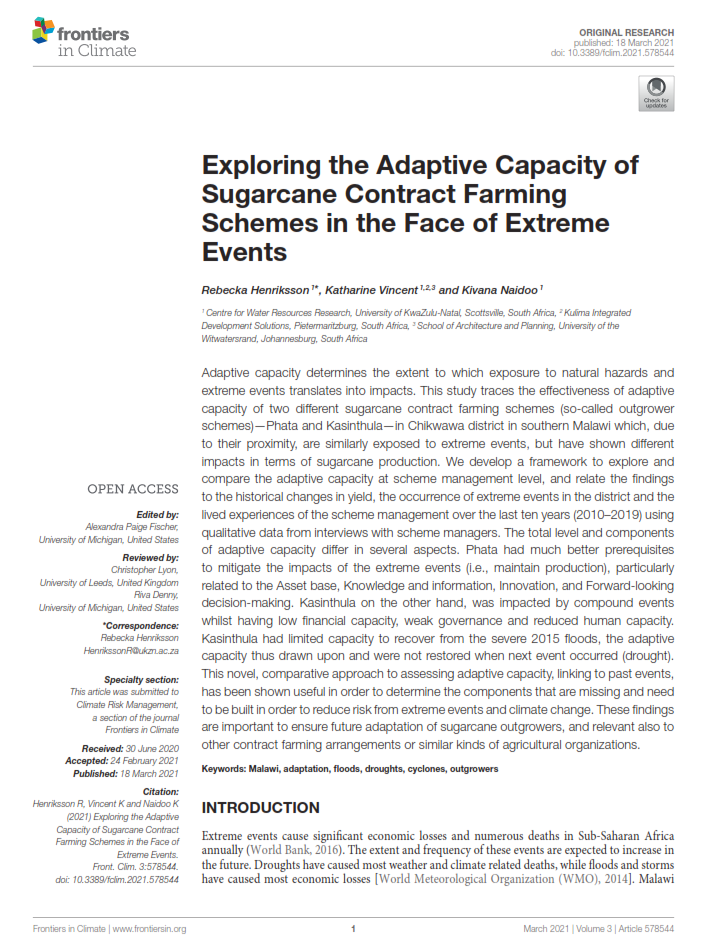A new paper “Exploring the adaptive capacity of sugarcane contract farming schemes in the face of extreme events” has just been published in the journal Frontiers in Climate. The paper, led by Rebecka Henriksson with Katharine Vincent and Kivana Naidoo from the UMFULA project team, developed a framework to determine adaptive capacity and then assess how this changed over time to mediate the impacts when different contract farming schemes were exposed to climate hazards, as shown through different production levels.

The Phata and Kasinthula sugar outgrower (contract farming) schemes are both in Chikwawa district in southern Malawi. As a result, they are similarly exposed to extreme events, but have shown different impacts in terms of sugarcane production. Looking over the last 10 years, the total level and components of adaptive capacity differ in several aspects. Phata had much better prerequisites to mitigate the impacts of the extreme events (i.e. maintain production), particularly related to the components of the adaptive capacity framework, i.e. the Asset base, Knowledge and information, Innovation, and Forward-looking decision-making. Kasinthula had limited capacity to recover from the severe 2015 floods, the adaptive capacity was thus drawn upon and had not been replenished by the time the next event occurred (drought). This novel, comparative approach to assessing adaptive capacity, linking to past events, is useful in determining the components of adaptive capacity that are missing and need to be built in order to reduce risk from extreme events and climate change.
